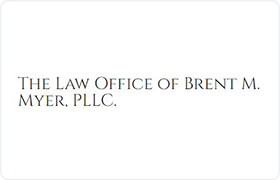Port Salerno Bankruptcy & Debt Lawyer, Florida, page 2
Sponsored Law Firm
-
 x
x

Click For More Info:
-
Law Office of Brent M. Myer, PLLC
27 SE Ocean Blvd Stuart, FL 34994» view mapBankruptcy & Debt Your Local Bankruptcy Attorney
Brent M. Myer has over 15 years of consumer bankruptcy experience and has represented both debtors and creditors in the past.
772-873-7794
Jon Lowell Martin
Welfare, Wills & Probate, Criminal, Bankruptcy
Status: In Good Standing Licensed: 23 Years
Robert Lyston Jennings
Landlord-Tenant, Fisheries & Wildlife, Credit & Debt, Bankruptcy & Debt, Bankruptcy & Debt
Status: In Good Standing
E Christopher Desantis
Civil Rights, Bankruptcy, Trusts, Contract, Family Law
Status: In Good Standing Licensed: 47 Years
 Brent Myer Stuart, FL
Brent Myer Stuart, FL Practice AreasExpertise
Practice AreasExpertise
